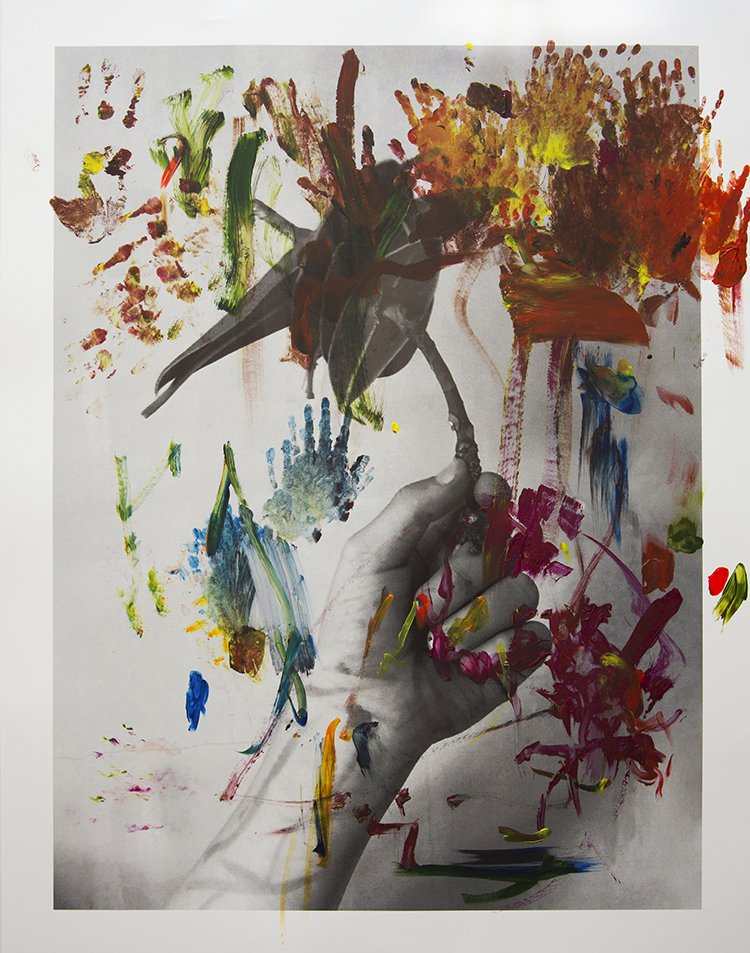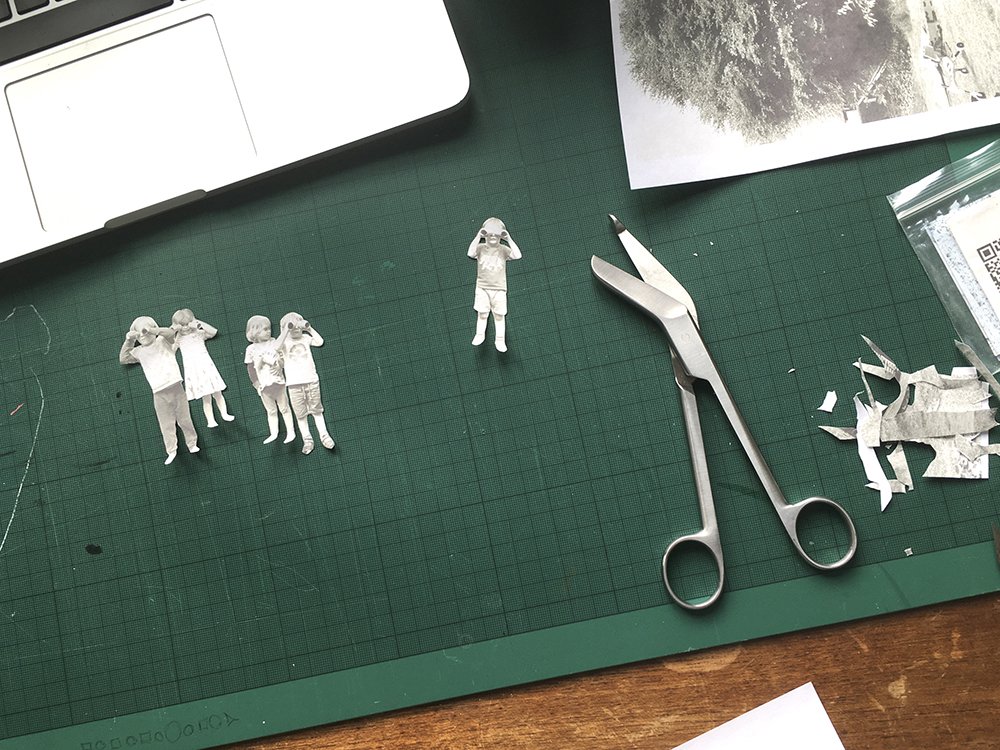Gina Lundy
A sense of community permeates Lundy’s practice. Their activism combines documentary practice with a playful approach that reflects on our responsibility to one another. The artist collaborates with their children to create and document domestic interventions and artworks celebrating the absurd and ordinary.
-
From Head, Hands Heart (Homo Ludens), 2022
From Domestic Portfolio, 2017
Process image
From London’s For Sale and I’m Not Moving, 2017
Gina Lundy is a Glasgow-based visual artist whose work spans genres, mediums and methods. Their creative approach aims to challenge dominant narratives and playfully suggest alternative readings, weaving together images, text and sound. Gina works as a freelance photographer, creative and tutor across a range of educational settings. In 2021 they co-founded We Are Wonder a pioneering outdoor educational setting that champions consent, self-direction and nature-led learning.
Since 2016 Gina has explored the synergy between their creative practice and their young children’s innate ability to play and explore their environment. Recent work together explores play through a collaborative lens and is informed by some of the theories surrounding holistic education that centralise the importance of unity within the 3 domains of learning: cognitive, affective and psychomotor, also referred to as the head, hands and heart.








